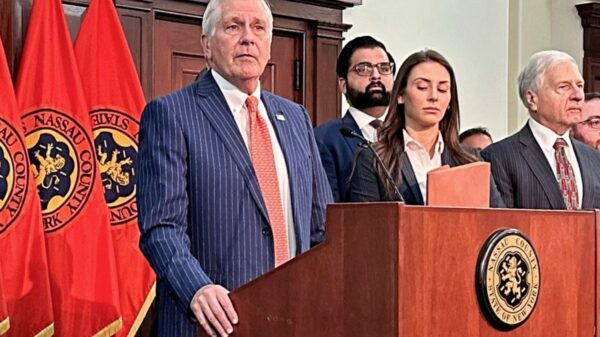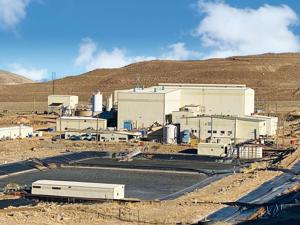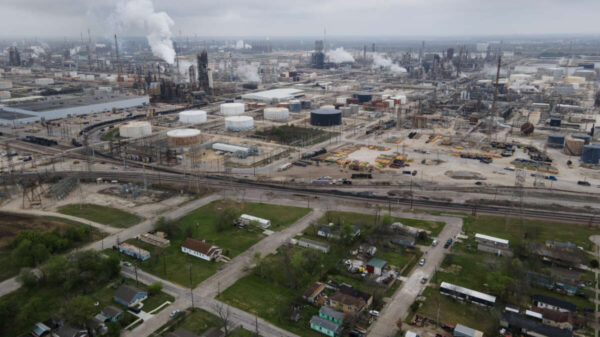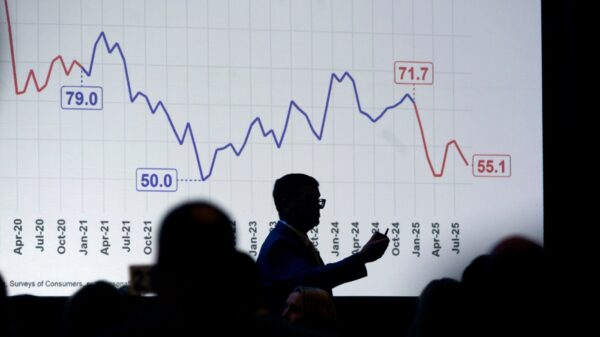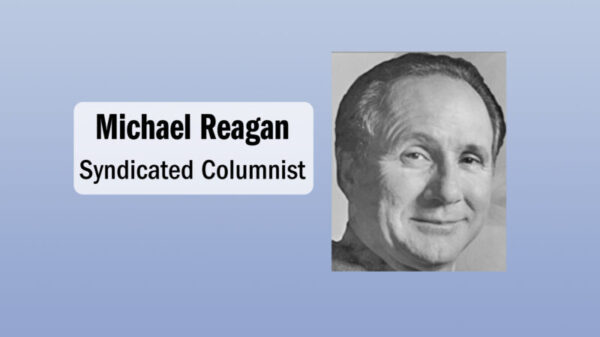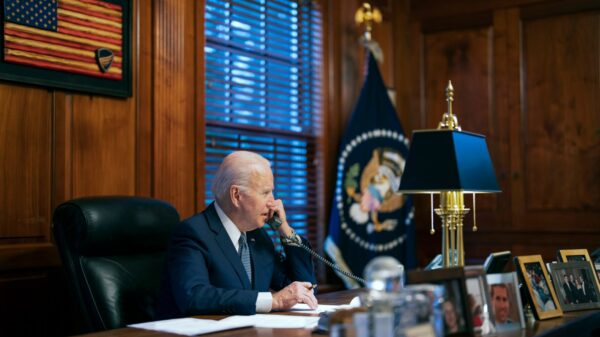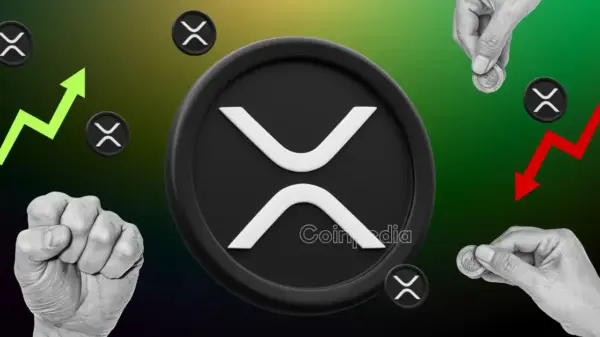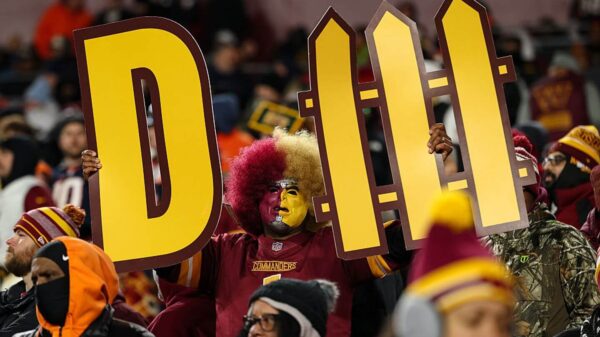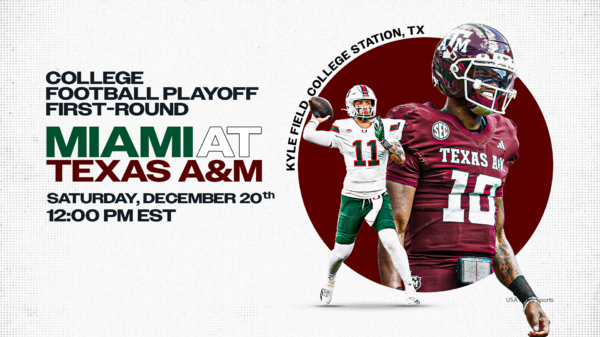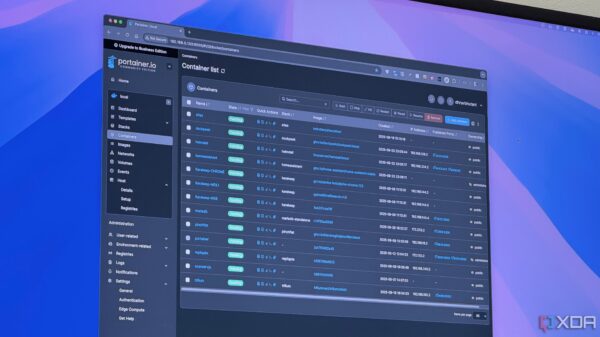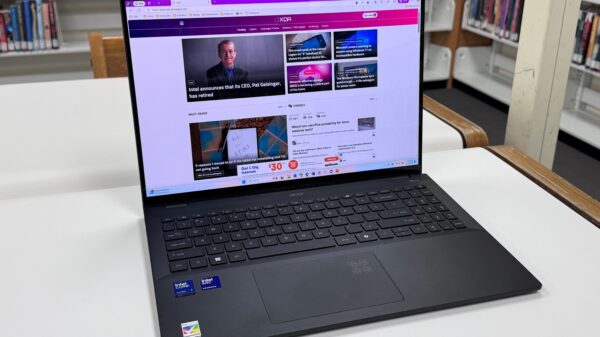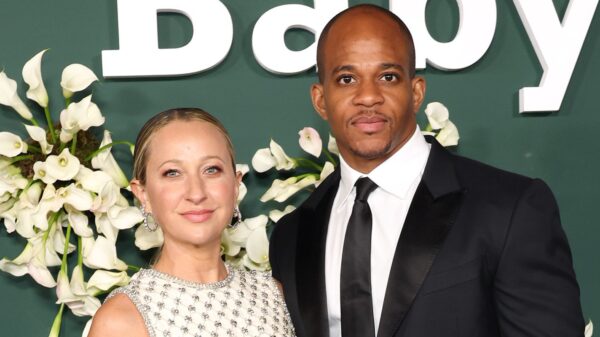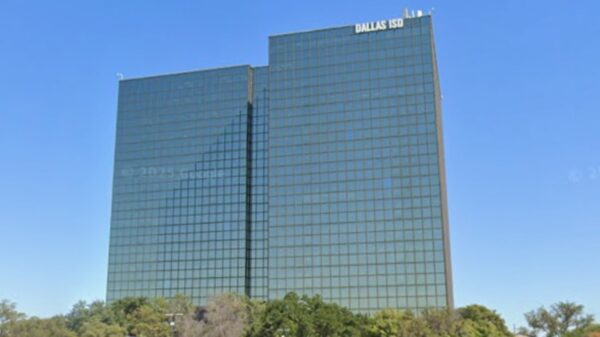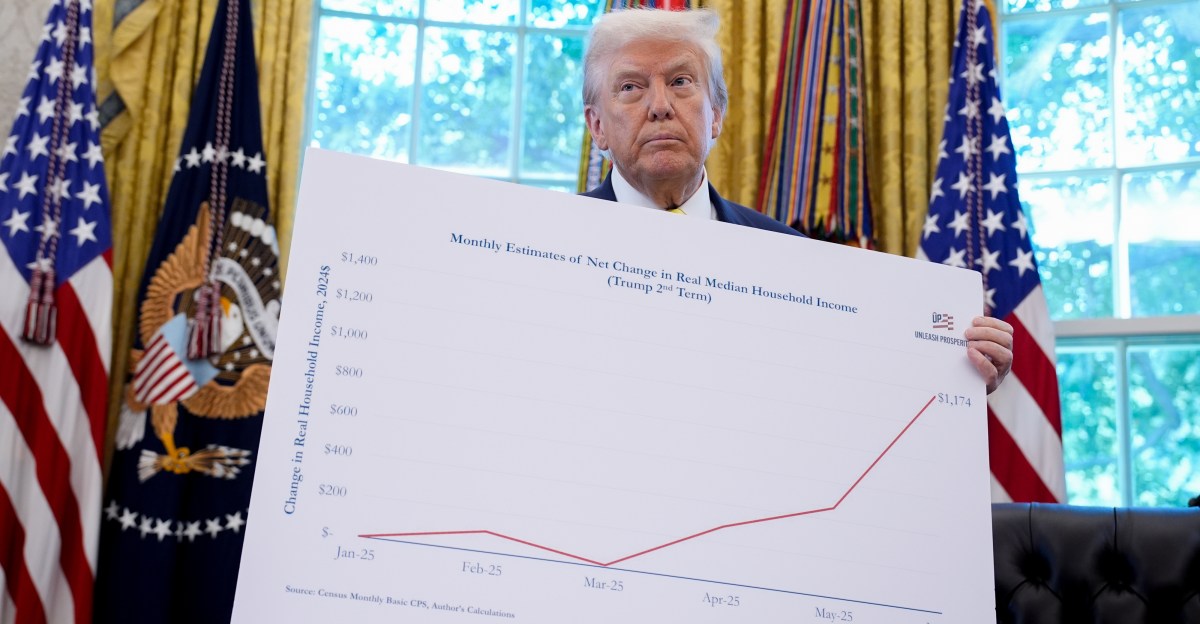UPDATE: President Donald Trump is facing a significant political challenge as his economic approval ratings plummet to historic lows, just weeks after winning the 2024 election. New polling data from CNBC and Quinnipiac University reveals that Trump’s net approval on the economy has dropped to an alarming -13 points and -19 points respectively.
The urgency of this situation stems from widespread voter dissatisfaction, primarily driven by persistent inflation and soaring prices. A recent poll conducted by The Economist and YouGov highlights the severity of Trump’s economic standing, revealing a staggering -34 points net approval on “inflation/prices.” While only 30% of adults approve of his handling of this issue, a staggering 64% disapprove.
Voters are particularly frustrated given that Trump campaigned on a platform promising to address inflation, which had been a significant concern during President Joe Biden‘s administration. Ironically, many of Trump’s economic policies, including imposing tariffs on imports, have contributed to rising consumer prices rather than alleviating them.
While Trump has occasionally acknowledged inflation as a critical issue, he has also downplayed its importance. In unscripted remarks following his inauguration, he stated, “They all said inflation was the number one issue. I disagree,” suggesting he prioritizes immigration instead. His administration’s focus appears to be less about lowering prices and more about enforcing tariffs and advocating for lower interest rates.
Despite Trump’s ongoing efforts to address specific sectors, like pushing for more beef imports from Argentina, his broader economic strategy has not resonated with voters. Several analysts argue that his administration’s tariff policies and push for immigration reform are behind the rising prices that continue to haunt consumers.
The shift in Trump’s economic approval represents a stark reversal from his previous standing. Throughout his first term, even those who disapproved of Trump generally viewed his economic management positively. According to Pew Research, over half the public rated the economy as good or excellent before the pandemic. Now, only 26% of people believe the economy is in a similar state, showcasing a significant decline in voter confidence, including among many Republicans.
The current economic landscape mirrors much of what was seen during Biden’s presidency, despite Trump’s campaign rhetoric. Key economic indicators such as GDP growth and stock market performance have not changed dramatically, but persistent inflation remains a pressing issue. With high prices and interest rates dominating discussions, voters are increasingly frustrated and are looking for accountability.
As Trump’s approval ratings continue to struggle, political analysts are closely monitoring his next moves. He remains more popular overall than during this time in his first term, but his slipping economic approval could dampen his influence moving forward.
Looking ahead, all eyes will be on how the Trump administration addresses these pressing economic concerns in the coming weeks. Will he pivot his focus back to inflation, or continue down the path of tariffs and immigration reform? The answer could determine his political future as voters grow increasingly disillusioned with the state of the economy.
With the stakes higher than ever, the urgency for a clear economic strategy has never been more critical.


